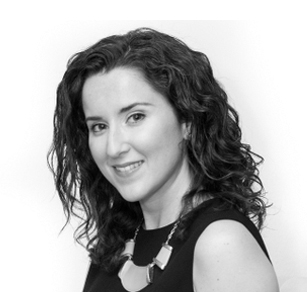
Period Problems Solved
Period Problems Solved
Ever feel like your energy, personality, and productivity changes throughout the month? Does “PMS” throw you off and ruin your week? Hormone Expert Alisa Vitti is here to share how we can use our period to be more productive and how to get rid of PMS symptoms through diet and lifestyle changes.
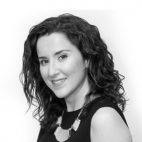
Alisa Vitti
Author of "Woman Code"
Alisa Vitti is a functional nutritionist, women's hormone expert, and best-selling author of WomanCode. Alisa's ground-breaking protocol is the first diet based on a woman's hormonal patterns - she teaches women how to biohack their way into remission of all chronic menstrual issues - period. She is a pioneer in the fem tech industry, founder of FLOliving.com, the first virtual health center that supports women's hormonal and reproductive health. She is also the creator of MyFLOtracker.com, the first biohacking menstrual app that uses functional medicine and phase-based recommendations to make your period better over time.
Transcript
Maria Marlowe: [00:00:34] Welcome back to the Happier and Healthier Podcast. Today, I’m very excited to bring you a Alisa Vitti who is a hormone expert and the bestselling author of Woman Code. This is such a great book. I read it, I think last summer, maybe two summers ago, and it came out way before that. And I have to say, it was one of the most enlightening books that I’ve read. And in woman code, Alisa really breaks down our period and our menstrual cycle and how it affects us day in and day out. Much of our medicine and much of our society treats women as if they were men in the sense that they don’t account for the fact that our hormones are changing throughout the month. Our body is changing throughout the month. And so at one point of the month. Yeah, maybe it’s great to go run a marathon and do hit workouts and do really, really hard exercise, whereas other parts of the month, our body may not need that. And maybe it needs something a lot gentler, something more soothing, something more calm. And so what Alisa has really done is develop this whole system called cycle thinking, where she teaches people how to really sync up their life with their cycle so that they’re always feeling in balance, even though the things that they may doing, the exercise, the work, the socializing, etc.may be a little bit different.
Maria Marlowe: [00:02:05] So we’re going to dig into that, which I find fascinating. And we’re also going to just be talking periods in general and PMS because I see it all the time as a health coach that our women just accept that when they get their period, they’re going to have PMS when it really could not be further than the truth. PMS is not a prerequisite to having your period. And in fact, a healthy period is one in which you don’t experience any PMS symptoms. So we’re going to talk about that and just hormones in general. Alisa is such a wealth of knowledge and I just love speaking with her. You may have already checked out her site or been introduced to her site. It’s called floliving.com. She also has the MyFlo period tracker on the app store. So you may already be familiar with her work, but if not, I’m very excited to introduce her to you today.
Maria Marlowe: [00:03:04] You’ve set a goal for yourself to slim down or improve your health and you need some help getting there. Join me for Eat Slim, my 10 week online nutrition and cooking course. It’s been repeatedly called life changing my past participants. As you finish the course, having a better understanding and appreciation for your body. You’ll learn how to tailor your diet to your unique body so that you wake up feeling energized, light and vibrant. You’ll conquer digestive issues, shed weight, get rid of sugar and junk food cravings, and learn how to cook and order healthy foods no matter what the situation. If you’ve been struggling to find a diet that helps you feel amazing every single day. Sign up for Eat Slim at mariamarlowe.com/eat-slim. Past students have told me they got more out of this than working one on one with a nutritionist, and that I should be charging double and triple what I am for this course. But I really want to keep this accessible because I want as many people as possible to be able to do this program. So I’ve kept it at less than thirty dollars a week. So if you’re ready to get healthy for good, head to mariamarlowe.com/eat-slim to sign up.
Maria Marlowe: [00:04:30] Alisa, welcome. Thanks so much for being on the show.
Alisa Vitti: [00:04:32] Oh, it’s totally my pleasure, Maria. Always happy to chat with you.
Maria Marlowe: [00:04:36] Yes. So I’m very excited to talk periods with you. You are the period queen. Oh. So let’s just start with that. How did you become this period queen?
Alisa Vitti: [00:04:48] Well, it started a long time ago when I was in sixth grade. You know, we had sex ed class. I remember this vividly was like one of those life changing moments. And that was the day we learned about menstruation. And, you know, I come from immigrant parents. And so, like, there was no talk of any of that growing up. So I literally had no clue about this fact that I was going to get a period and that this was about to happen. So when they talked about it in class that day, I was like gobsmacked. I was like, oh, my God, are you kidding? This is so exciting. My first authentic reaction to hearing that I was going to have this monthly period was just like excited, joyful enthusiasm.
Maria Marlowe: [00:05:33] I think it’s probably the opposite of every other girl.
Alisa Vitti: [00:05:37] And I think that I had that when I looked back because I remember looking around the room at the faces of my friends and they were having the opposite reaction of like, oh, this is terrible. And I thought later I remember thinking, well, why is it that I had that reaction? I actually think it’s because, like I said before, I got no conditioning about it. Right. I wasn’t told that it was going to happen, which, you know, that’s not ideal. But I also wasn’t given any negative programming like, oh, the curse. So it’s going to be bad. I was there was no foreshadowing of doom. You know, and I think all my other friends must have gotten that in the ether of their, you know, just conversations that you over here as a young person. And so they were expecting it and they were expecting it to be bad. And so their reaction was negative. And so I think it’s really very, very important that we think about, you know, if you do happen to be a mother to a daughter, what you’re telling her to expect, because that’s what she’ll expect, you know. So anyway, that began that moment of like joyful recognition began my long lifelong love affair with menstruation. I guess I immediately that recess grabbed my girlfriends. You know, there’s like a little foursome. And I said, OK, we’re starting the period club. And the two activities of the period club were to guess who was gonna get their period first and then to do bathroom runs during recess to see if anybody got it. We have no idea what that was supposed to feel like. So yeah, my love for menstruation runs deep and long. And it just grew out of that.
Alisa Vitti: [00:07:18] And then in my late teens, early twenties, I developed a hormonal imbalance that gave me a different experience of menstruation. And, you know, mind you from 12 to 22 when all of my contemporaries were getting their period and having their monthly experience for me from the age of 12 to 22, I only got my period six times and two or three of those were synthetically induced with synthetic progesterone, which any of you who’ve ever had to have go through that know that it is the most hellacious type of PMS you’ll ever have. And so though I had this initial like love and excitement about my period, it then turned into my period is a huge problem and my hormones were not working. And I bumped up against the fact that no one knew what was wrong with me. I was being brushed off by doctors like, oh, don’t worry about it, it’s fine for seven, eight years. You know, how is that even a reasonable thing to say to somebody?
Alisa Vitti: [00:08:18] And then when I was a student at Johns Hopkins, I was so, you know, these hormonal imbalances really had me not able to function like I couldn’t sleep at night. Insane insomnia. I couldn’t get up during the day. I was so exhausted. I was super anxious and depressed, like I would swing with these really intense moods. I was over 200 pounds. I was covered in cystic acne. And, yeah, I wasn’t getting my period either. And no one was telling me that there was anything wrong. You know, I went to all the best gynecologists and I heard well, let’s just put you on the pill. We don’t know what’s wrong with you. And let’s just hope for the best. And I just found that to be completely unacceptable as a student of science at an institution like Hopkins. I thought we could do better. So I said I couldn’t sleep. I was just researching all the time in the library. And I finally found a medical journal that had some description about Stein Leventhal Disease, which was the original name given for PCOS. Of course, anything that is discovered on a woman’s body is is named after a man, interestingly.
Maria Marlowe: [00:09:20] Like the G spot, right? Some German dude. We should rename all of our stuff.
Alisa Vitti: [00:09:28] So I took that information to my gynecologist at the time and I said, I have this disorder. I’m fairly certain. Can we do some tests? We did bloodwork. We did trans-vaginal ultrasound. We did all sorts of things. And she’s like, you’re right. This is what you have. I don’t know how we didn’t think about it. Yeah. And then I said, OK, so great. Now we know what it is. Then I’m from New England. So I’m like, all right. What do we do? I’m very practical and interested. Well, there’s not much that we can do. You know, we can put you on a whole bunch of medications. You’re going to deal with the obesity. You might develop diabetes. You have an increased risk of heart disease and cancer. And, oh, by the way, if you ever want to get pregnant, we don’t know if that’s going to happen. Even if you have to use, you know, IVF, it may not have it.
Alisa Vitti: [00:10:17] And I’m, you know, 21, 20, 21 at the time. And I just thought, no, this is not my future. I’ve got to figure this out. So that sixth grade passion for just when am I going to get my period turned into a 20 something year old passion into how can I save my period? How can I have a period? What can I do to restore this thing that was supposed to be happening for me? And that changed the trajectory of my career quite a bit. And I know I was originally planning to become an ob/gyn. That experience, really opened my eyes to its limitations in terms of chronic hormonal health issues for women. And I thought functional medicine would be a better path for me. And that’s the beginning, I would say, of how I ended up becoming a period queen, as you say, because it’s those two seminal experiences and then figuring out actually how to restore my cycle, developing the flow protocol, watching that transformation of myself really made me want to share that with everybody else.
Maria Marlowe: [00:11:19] Yeah, I think a lot of people and healers in our space, they didn’t necessarily grow up wanting to do that thing, although you did have that early period obsession, but they had their own issue like you. Yeah. You were struggling with all of these issues. You went all the conventional routes couldn’t get an answer. And maybe the answer you did get was the one you didn’t want to hear. Right. Doom and gloom. And you figured out, no, actually, there is another way and you look great. Your skin is clear. You don’t have any of the symptoms anymore. And you’ve had a kid. So you’ve done everything they said that you couldn’t. So that’s pretty amazing. Thanks. So before we get in to all the typical symptoms of PMS and all that, I want to just start with thinking of our period as a vital sign. Right. I know that you say that our period is our fifth vital sign as a woman. So what should we be looking for with our period? And what does it indicate the different colors and the amount of it? You tell us a little bit about that.
Alisa Vitti: [00:12:20] Yes, I. A few years back went on Dr. Oz and used fruit juice to simulate menstrual blood colors on national television, which for me was something that I had always been doing in workshops and didn’t realize that this was making television history. But. And it was very taboo to do, you know, and I was so grateful that they were willing to do it, because it is so important for women to understand that every month you’re getting kind of a free hormonal assessment by looking at the color and texture of your bleed. And a few years after that segment aired, I think the College of Obstetrics and Gynecologists decreed officially that your period is your 5th vital sign.
Alisa Vitti: [00:13:02] I think that’s also really important that you as a woman understand that the institution of medicine now looks at your period in an equal footing as blood pressure or temperature, right. Heart rate. These are your other vital signs. Right. And that’s important because, you know, for millennia we’ve been taught to devalue this aspect of our health or this biomarker. And I think it’s important if you’re questioning whether or not you should take it seriously. Now, it’s just as important as your temperature. Right. And according to medicine. So what should you be looking for? Right. You obviously, in an ideal situation, you’d have a nice, fresh, healthy red color to your bleed. It would start red and end red. And it would last four or five days and it wouldn’t be particularly clotty or heavy. You just be like a nice normal flow. But that’s not the case for a lot of women. Right. A lot of women will experience really heavy bleeding, dark bleed, lots of clots. Or you can experience kind of like a brown staining at the start or end of the bleed. It can last too long or not be long enough. It can be very, very light pink and not ever get to that red saturated color. And all of these things speak to specifically the balance of estrogen to progesterone. So if you have too much estrogen, you may have a very heavy clotty lengthy bleed. If you have not enough progesterone, you could have a lot of that brown staining because it’s old oxidized blood that didn’t get completed its exit last cycle. If it’s light pink, it could be not enough estrogen.
Alisa Vitti: [00:14:55] These are just some of the things that the color and texture can tell you. And is that so valuable? Because if one month it’s red and the next month it’s pink and you don’t know why you can’t make any changes. But if you know how to start asking yourself the right questions, like, well, OK, so what did I do this past month that may have changed my period from red to light pink. And if it were me, I would have you ask questions like, did I do some sort of extreme diet? Did I do too much intense exercise? Right. Did I do things that may have reduced my estrogen output to such an intense degree that my period is very, very light and then vice versa? If you see the brown staining, you know, you could say, where was my stress level this month? Right. Because it turns out that having too much cortisol requests from the body actually ends up robbing from your progesterone level. So you then can have lower progesterone and you can have a dysfunctional bleed as a result of stress from the previous month. So that helps you then figure out what’s your game plan. Right. Like, if you took your temperature and your temperature was high, what would you do? You would want to do something, right? Of course. Here we are. We bleed every month. We look at it or actually we try not to look at it bleed. Right. And then we don’t do anything when there are clear biomarkers and indicators that are that your body is asking you to take action to help it out. Right. Right. Like the temperature was elevated.
Maria Marlowe: [00:16:28] Right. Well, I think you bring up two really interesting points. Number one, the fact that our periods are kind of like an icky or a negative thing. Right. I think just society, we are kind of taught that. And you’re right. No one’s like down there, like checking out like like what is the color of my blood or what does it look like? Is it? You know, people are not really looking for that. They’re just like throwing it down the toilet as soon as they can and moving on. Right. So I think that’s one thing that’s interesting. And the other thing that’s interesting is you’re right where we taught this. I’ve never been taught this. Right. Except maybe from reading your book. But other than that, you know, we’re not taught, OK? If it’s red or if it’s pink or if it’s brown. This is what it means. If it’s clumpy or it’s light. So this is really, really important information that we’re just not being taught. So I’m so thankful and grateful that we have you to teach us these things.
Alisa Vitti: [00:17:21] I think that, you know, especially the first thing that you said about how this ick factor and we we are so eager to throw it down the toilet. Right. I mean, I even think especially with it, like when you’re using a tampon, it’s really hard to kind of get a sense of what it’s looking like. Although if you’re heavy bleeder, you’ll know that it’s heavy because you’ll be bleeding through your tampons. But we need to catch up to the science as a female culture, because from where I sit in the fem-tech world, there are massive amounts of investment being made by people that you know well, in2 harvesting, for example, the stem cells from. Does to be used for sports injuries by men. And what is the placenta? Right. I mean, it’s it’s formed in the uterus. It’s part of the it has an endometrial aspect to it. In fact, menstrual blood is super rich in stem cells. We don’t even have to harvest the placentas. We can simply just we could all be donating our menstrual blood to science and giving all these stem cells. But we look at it like this garbage disgusting thing to get rid of and to certainly avoid interacting with when it couldn’t be further from what the actual science is, which is that it is a miraculous fluid that holds the substrate of of life, if you will. Right. STEM cells are what give rise to the formation of new things. So it’s pretty powerful stuff. And I think that going back to our comment before about, you know, what we’re taught how to think about it. Right. It’s so critical. Can you imagine if you’ve been told at a young age like, wow, when you’re twelve-ish, you know, you’re going to have this powerful biorhythm kick off in your body and it’s going to make you super creative and super intuitive and super communicative. And you’re going to produce a fluid that is like totally life-giving, you know, you’d be like, cool, game changer.
Maria Marlowe: [00:19:35] I’m awesome. Awesome me right?
Alisa Vitti: [00:19:36] Right? It would change the trajectory of your relationship with yourself. Yeah. And that what we have instead is a situation where we set girls up to be afraid of their bodies. And then when puberty does hit, they feel betrayed. They feel upset that they no longer fit into somehow the patriarchal situation. And then all sorts of dysfunctional behavior can kick off from this, not just avoiding our periods, but disordered eating. You know, when you I mean, if the core of who you are is, you know, a biological, female, menstruating, the whole thing. And you’re taught to hate that. How can you ever really, like, love yourself deeply, truly, honestly? Yeah, it’s so true. And I think I think healing this conversation goes way beyond just getting rid of your PMS. It’s about reclaiming your feminine soul and healing from these patriarchal wounds. And that is one of the things that’s been such a gift for me personally doing this work and one that I know is a big part of the conversation for a lot of our clients.
Maria Marlowe: [00:20:48] Yeah. I know just personally when I got my period around the age of twelve, I was crying. I was so sad, like I had felt like my childhood was dead. And I don’t know, I just I didn’t like it. And I was told I’m going to have this once a month. And I didn’t like it at all. Like I thought it was going to inhibit me. And I never thought to think of it as something that makes me more awesome. Right. Like you spoke about. So really, I think a children’s book is in order to help change this work.
Alisa Vitti: [00:21:16] I’ll work on that next. But I think that, you know, level one is certainly like, OK, what’s up with my period? What’s going on with the color? What does it mean? What do I do? Because in order for you to fall in love with your body, you have to have it be working real, or at least especially for women and their periods, because it’s just so, so deeply contentious within our own psyche about how our relationship to it. So I think it’s a great first step if you want to have this shift for yourself. Start with taking care of your period. You know, if you see that it’s not what it should be in terms of being balanced hormonally, then learn what kind of steps you can take to make it function more optimally because you can. Turns out you can biohack your period. And it’s important to know that you have a lot of agency in being able to change from month to month. The quality of your hormonal balance. And then of course, the bleed as a as a biomarker.
Maria Marlowe: [00:22:17] Right. So what are some of the things that we can do to biohack? So let’s say it’s either too short or too longer. It’s too much of one color and not another. What are some of the things just generally like food? I’m sure exercise.
Alisa Vitti: [00:22:31] I think the first thing when you want to approach optimizing endocrine function. Right, was you never can spot treat like how do you spot treat heavy bleeding? Right. It’s much more integrated as a system, your endocrine system. Certainly you could take things like milk thistle to help your liver, let’s say, break down excess estrogen. But if you’re not working on the other parts, it’s never going to really get truly resolved. Right. So I always encourage women just to kind of move away from spot treating and think. About healing root causes. So the endocrine system functions, as I describe it. Woman code in this very specific pattern. And if you want to get it to work better, you have to approach it in a specific order. So the first thing that you want to do, whether you have heavy bleeding or low progesterone levels or that brown staining or your periods too light or or you have really intense PMS or having acne or whatever your symptom is you’re having in fertility, you’re having pre-menopause, whatever is going on with you. The first thing to do is to get your blood sugar stable. Turns out that insulin at levels really, if they’re not stable, can disrupt all of your reproductive hormones. So getting that organized first is like the key to open the door to hormonal balance. So I always like to start with breakfast. You know, figure out which breakfast holds you for at least three hours. Right. So you’ve got to figure out, are you somebody who needs protein in the morning? Are you someone who needs carbohydrates and fats? Are you someone who needs a little bit of each? What works for you? And it’s not the same for each person. You know, I think that’s the other thing that’s really confusing for women right now, is that there are so many trendy diets like Keto and intermittent fasting and that then unfortunately, the research is pretty conclusive that extended Keto and extended intermittent fasting disrupts women’s hormones during the reproductive years, because it turns out that the research that was done to establish these as healthful, let’s say, dietary patterns was done on men and post-menopausal women.
Alisa Vitti: [00:24:49] And, you know, in all of you who are listening, who are participating in the wellness conversation. Right. In your reproductive years, anything that comes out in the media, the research is not being done on you yet. It is being marketed to you. And then you go ahead and do the experiment of your own volition. And unfortunately, these things are not necessarily suited for your hormones. So it can be very confusing. And what do I eat? How do I do it? You have to listen to your body. You have to really just focus on, well, if I eat, you know, for example, for me, if I were to just eat like, I don’t know, something like a piece of toast for breakfast plain, forget it. I’d be a wreck the whole rest of the day. And why your blood sugar cannot reset itself until you go to sleep. So if you don’t get breakfast right, that doesn’t matter what you eat the rest the day you might be able to triage with eating certain things the rest of the day, but you won’t really have a chance of stable insulin and blood glucose levels until you go to bed and reset. So getting breakfast down is supercritical. We spend a whole month in the flow protocol on stabilizing blood sugar because it is just so it’s like the baseline foundation if you don’t get that right. Might as well just forget it.
Maria Marlowe: [00:26:02] Yeah, I think balance in keeping your blood sugar balanced is pivotal not just to your hormonal health, but really your overall health. Right. And even your weight, your mood, like everything is tied to that. So I think that is really just in general one of the healthiest things that we can do for our body overall.
Alisa Vitti: [00:26:20] It’s so true. And women are, for example, more at risk for developing dementia and Alzheimer’s. And I think that the conversation around blood sugar and, you know, Type 3 diabetes and all of that. We’re really just learning now how important the conversation around sugar really is for our health overall. And it makes sense. Your cells are fueled by glucose. So if you mess with that, it’s going to affect your entire system. So certainly that’s the first place to start. The second thing to do is to really figure out how to manage your cortisol levels. Right. So what does that actually look like? That means you’ve got to figure out, for example, are you someone who can metabolize caffeine quickly? Shall we talk about coffee a little bit?
Maria Marlowe: [00:27:09] Let’s talk about coffee, because this is interesting.
Alisa Vitti: [00:27:12] And it’s very contentious, you know, because people are so in love with their coffee rituals. And I get it. I used to love. I mean, God, when I remember in coffee shops like where a first a thing, it was like, that’s all we did. We’d go to coffee. That was good coffee all day. And little did I know at that time that I had a mutation in one of my genes that prevents me from breaking caffeine down quickly enough. So caffeine already for normal people without this mutation in the CYP1A2 gene, he wanted to gene it even if you don’t have his mutation in the half, life of caffeine is anywhere from six to twelve hours, meaning it will stay in your system for anywhere from six to twelve hours after your initial intake of it. If you have this mutation, it will stay in your system longer and you will not be able to break it down efficiently, which means it will feel like you’re having like a caffeine crisis. You feel like jittery or you kind of crash really quickly or you don’t feel good. You can actually look this up on Web M.D.. It’s called caffeine toxicity? If you can quickly have too much of it in your system under certain situations.
Alisa Vitti: [00:28:19] So why am I talking about this in terms of the cortisol piece? Because it has a slight effect when you drink coffee, for example, on an empty stomach in the morning. Right. It messes not only with your blood sugar levels, but your stress levels. Right. So a little bit it can raise cortisol levels. So you’ve got to kind of be paying attention. Is caffeine your crutch for low energy, which is a sign of adrenal fatigue? Are you someone who is okay with caffeine and it’s working for you? But identifying these things, that lifestyle things are food items that really increase the stress response in the body and trying your best to eliminate them are really important. So, for example, we have so many forms of stress like chemical exposure, that’s a stress that creates a stress response and an inflammatory response in the body that’s going to disrupt your endocrine system. So, you know, I was tired. There’s a whole list in woman code about getting rid of certain products that have chemicals in them that are endocrine, disruptive. You may have too much caffeine. You may have this chemical exposure. You may have. You may be skipping meals. You may not be getting enough sleep. You may be be exposed to too much blue light. All of this raises stress levels in the body.
Alisa Vitti: [00:29:34] And any time stress is created, cortisol is requested because, you know, you have to understand the relationship between adrenaline and cortisol. All right. If something is stressful, received a stressful by the body, you get a little jolt of adrenaline to deal with it. And then you need cortisol to bring your body’s nervous system back into homeostasis. So the more stress you have, the more cortisol is requested. The more cortisol is requested. If it’s not something that your adrenal glands can just naturally be produced in in enough quantity, then your body will start to steal it from Pregnenolone, which is a sort of mother hormone. And instead of having left over Pregnenolone alone to convert into progesterone you’ll be, you know, reconfiguring it to be cortisol. And there is where we’ll start to see impacts in the cycle. You may have a face defect where you have a very delayed start to your period or you’ll have that brown staining. You’ll have a lot of mood swings it during PMS, lots of bloating. You have all those symptoms because the stress piece is not being handled. So the stress piece is not so much. I mean, yes, you can use foods like, for example, any foods that are rich in vitamin C or vitamin B, five really nourish the adrenal select chickpeas or any of your fruits and vegetables that are full of vitamin C can really help.
Alisa Vitti: [00:30:54] But I always find that the best place to start is just to look at these lifestyle pieces and start to really like tackle them one by one, like decide, OK, I’m going to put on my blue light blocking glasses after eight o’clock when I’m watching, looking at any screen or OK, I’m not going to have caffeine on your stomach or OK. I’m not going to go more than three hours between having some food. Right. And this way, you’re starting to allow your body to stay calm and centered from a stress response point of view.
Maria Marlowe: [00:31:26] A quick break from this episode to share with you an amazing opportunity. Are you interested in turning your passion for health and wellness into a career that helps hundreds, thousands or even millions of people live healthier? If so, consider becoming a holistic health coach through the Institute for Integrative Nutrition. The original and top health coach certification program I studied there in 2012 and it completely changed my career path and life. I went from an uninspiring job in finance to an exciting, fulfilling and rewarding career as a full time health coach. The program is offered as a one year or accelerated six month course, and it teaches you a mix of nutrition, coaching and business. They have some of the top teachers, including Dr. Walter Willett, who is the chair of Harvard’s Nutrition Department for 26 years. Dr. Marion Nestle, a professor at NYU and author of one of my favorite books, Food Politics. Dr. Mark Hyman, who is the medical director at the Cleveland Clinic Center for Functional Medicine. Dr. Andrew Weil, Deepak Chopra, Gaby Bernstein. And so many more millions of people are suffering from diet related illnesses. And I truly believe the world needs more health coaches. That’s why I’ve teamed up with IIN. and to offer an incredible opportunity to make studying there even easier. You’ll get fifteen hundred dollars off tuition plus one on one mentoring with me. Plus, you’ll be added to my private Facebook mentorship group where you can connect with other students and grads and also practice with them. To get your three bonuses, simply email me at [email protected] That’s m a r i a m a r l o w e dot com with the subject IIN and I’ll personally send you back the email that will allow you to get all of these amazing bonuses if you feel called to explore or start a career in health and wellness. Definitely reach out.
Maria Marlowe: [00:33:46] Right. Yeah. So I always tell people food is very important, but it can only take you so far if you’re not focusing on the stress factor because again, this is a topic that comes up all the time. So stress is not only going to harm your and endocrine system, your adrenals. Right. It’s also going to make it harder for you to lose weight. It’s also going to impair your immune system. Right. So it has all of these negative effects. So really managing our stress and making sure we’re eating the most nourishing foods for our body are two of the most important things. But you can’t really do one without the other. You really have to do both.
Alisa Vitti: [00:34:24] And listen, I get it. Sometimes this feels like a drag. Right. Like, gosh, you know, there’s so many things I could do to like just take care of my body. And especially now in this age of technology where we interact so much with machines. Right. And that’s only going to increase. I think that we may be judging subconsciously a little bit. The fact that we’re humans still today, I think is a great thing. And that being human means you have to actually be in a compassionate, responsive relationship with your body versus how you interact with the machine. Right. The machine power is down. You plug it in. You keep going. It’s not so with the body, right? It needs a different kind of approach, not just wait till you burn out and hope that you can replenish. You have to kind of continuously nourish yourself properly and support yourself so that your system, the genius, elegantly complex bio computer that you have, your mind, body, organism can function optimally. But we don’t have a plug. We can’t plug into a power source. We have to create that for ourselves with our self-care practices. So it becomes a choice. How do you want to live?
Maria Marlowe: [00:35:40] For sure. And that brings up an interesting point. So first of all, Alisa’s book. Woman Code. If you’re a woman, you need to get the book because you learn so much in there just about your body that I’m sure you’ve never even come across. And one of the things that you talk about in the book, which I just want to touch on briefly, is that during our menstrual cycle, we have different phases. And during those different phases and as women, we know like we get more hungry during a certain period or we get more tired during a certain period. Right. But you really break down what the four different phases are and then what we should be doing in terms of exercise or even just work, just one life. So can you just briefly give us an overview of the four different parts of our period or cycle and what we should be doing during those periods and why?
Alisa Vitti: [00:36:28] Absolutely. You know, the reason why I ended up creating, what you’re talking about, is we call the cycle thinking method. The reason why I created that was because after you get yourself hormonally balanced, right. You stabilize your blood sugar. You deal with your adrenal stress. You work on eliminating estrogen in the liver and in the gut. How do you maintain hormonal balance? And I was asking myself this question, you know, many years ago, how how am I going to stay hormonally healthy after I did all this hard work to get my body back to homeostasis? And I looked at the four phases of the cycle. We have a follicular phase and obligatory phase, alluvial phase and a menstrual phase right at the menstrual phase when you’re bleeding. I often think it’s really kind of maybe purposely confusing that we have the menstrual cycle and then menstruation is just the week of you. Like the language is very imprecise. And I think that that only serves to confuse us more. So that’s why I try to call it just like your bleeding weak. OK, we’re bleeding. That’s what’s happening. Okay, great.
Alisa Vitti: [00:37:38] So these four phases, of course, the reason why they are what they are is because you have specific hormonal ratios at play affecting the physical structures of the ovary and the uterus. Right. So these hormones stimulate the ovaries, they stimulate the endometrium. They make things happen in the reproductive organs. But it also affects everything else in your body and from your metabolism to your moods to your immune function. I mean, you name it, it goes way beyond your period. And I did a deep dive into understanding these different ratios. And I spread to put together a list of foods that would optimize the ratios of these hormones in each phase. Turns out there specific exercises you should do in each phase. Did you know, for example, that your brain structurally is different by up to 25 percent over the course of your cycle because of these hormonal ratio shifts? So that means you’re literally not the same person week to week. And yet we’re trying to be the same person every day. And we beat ourselves up and we tell ourselves, oh, something’s wrong with me that I last week I went to boot camp class and I crashed the class. This week I’m at boot camp class because I’m here to compete. I’m committed. I’m gonna just do it right. All the things we’re sort of hypnotized into saying to ourselves.
Alisa Vitti: [00:39:08] And you go to that same boot camp class a week later and you’re like, oh, my God, I’m the worst person ever. I’m so lazy, I’m so unfit. I can’t get through this class. You beat yourself up. Meanwhile, what has happened is you may have gone from the first half of your cycle where doing high intensity interval training is ideal and you may have shifted into the second half. And doing that is actually really bad for you, right? Will cause you to gain weight. Right. But you’re supposed to be the same every day and just do the same work on every day because that’s what actually works for men, actually for their hormonal veterans. And it’s making you more symptomatic and certainly not getting the results with your health, your fitness and anything else you want to do in your life. So this is the fourth step of the flow protocol, the cycle thinking method, and it became so popular. And when woman code came out that I was getting email after email about can you turn this into an app for us to make this link so I don’t have to think about all the things you put in the book, in the charts, and I don’t know which phase of my cycle I’m in and how do I know which phase of my cycle.
Alisa Vitti: [00:40:21] I mean, most of us just know when we’re bleeding, you know, and not anything else. So right after my daughter was born, I decided to build the app and then we launched it two years ago. So the MyFlo app, which you can download at myflotracker.com, is the world’s first and only period tracking app that will help you improve symptoms. What was what’s the point of tracking your period? If it’s like, OK, bad news, here’s your bad news update. You’re about to have PMS. Enjoy you week. What’s the point of that? So this app, the more you track symptoms, will teach you why you’re having the symptom. What you can do to get rid of the symptoms of food, lifestyle changes. And then it will off course tell you exactly what to do in each phase. Right. What foods should you be eating? What should you be doing? What you should be focusing on at work? Right. For example, during the ovulatory phase, estrogen is peaking and stimulates the social and verbal centers of the brain most profoundly during that phase. So if you’re in that phase, it’d be really good if you could do things that were social and verbal in nature, whatever that means to you for your world of work. Could be making a presentation, could be going to your networking event. So figure out what that is for you and why is that valuable? Right. What would be the value in synchronizing your diet, your exercise, your creativity, your productivity to your hormonal patterns?
Alisa Vitti: [00:41:52] Well, the value is it completely eliminates any risks that you would have of developing any sort of imbalance. Right at getting any burnout. You can do more with less stress on your system. People ask me all the time, how is it that I run a company, write books? I have a kid. And it’s like what I’ve been doing. I’ve been living this thinking methodology for almost 20 years. And it’s my foundation for self-care keeps overwhelming at bay. I don’t have to do everything all at once. I didn’t do the right things at the right time. Yeah, and it’s a really cool practice, not just because of the health benefits, but also because for me I was very curious about how to live more in tune with myself as a woman. Once I realized that I had been like condition to try to fit myself into a patriarchal model of success. And the practice of living cyclically is one that keeps me really centered in my feminine energy, to which I think is an added huge bonus.
Maria Marlowe: [00:42:59] Yeah. No, I mean, it’s just so fascinating to really think about because we go by and we don’t ever think about like, oh, maybe the way that men do things is different and what works for them is different than the way that we do things. So I really love how in the book you really break down the four phases and say, OK, this is when you’re most creative. This is when you’re most social. This is when you need to chill, you know. And it really also just makes you feel more normal because you’re right. I think we do beat ourselves up when we’re not who we think we’re supposed to be all of the time. So it’s really fascinating. One thing I want to touch on is PMS and all the symptoms that are associated with periods. This is another area where I think we’re taught one thing, but the reality is actually a bit different. So I know when I was growing up and I first got my period, first of all, we were advertised Mydol all the time, which is a over-the-counter medication for period cramps and any PMS symptoms, I thought. And my friends thought that when you got your period, you got PMS, you got bloated, you got cramps, you got all the things. But it doesn’t have to be that way. So now, you know, if I didn’t track my period, I wouldn’t really know when it’s coming because I don’t have any of those telltale symptoms, you know? So, you know, let’s talk a little bit about that. What are those symptoms an indicator of and how can we get to a place where, you know, our period is just this magical thing that happens every month and it’s not something that we dread and we need to stay home for a week.
Alisa Vitti: [00:44:28] So first and foremost, PMS is a hormonal imbalance. It is not the thing that you’re supposed to have before you start bleeding. That’s really just that. I know that you frown right there, but the important thing, because what you’re told is, like you said, PMS, then bleed. Right. Yep. That’s not scientifically accurate. It’s hormonal imbalance that you may be having all month. If you have PMS you’re likely going to have disordered bleeding too. Right. So it’s part of this general hormonal imbalance. But during gluteal phase. PMS is specifically caused by an a deficiency in the progesterone to estrogen ratio. So in an ideal setting during luteal phase, you’d have more progesterone being produced than estrogen. If you have the inverse where you have more estin, then progesterone, you will have all the stereotypical symptoms based on your genetic predisposition. You’ll have bloating, you’ll have breast tenderness, you’ll have mood swings of acne, you’ll have fatigue, you’ll have brain fog. What? Pick one. Pick twelve. Either I tell you I have migraines. If any of that stuff can happen and the solution is not medication, right? You’re not deficient in medication. You’re not. Oh, you like the way these advertise. Everything can be like, oh, yeah. The week before your period, you’re different. You have a mite all deficiency, right? He might all. And then you’ll be fine. That’s not what you’re deficient in. You have a progesterone deficiency. So what you can do during the active heart, where if you find yourself in the middle of your labial phase and it’s going poorly.
Alisa Vitti: [00:46:13] There are a couple of things that you can do to triage, but you’ve got to get to work immediately after your bleed is over. To set yourself up for the next cycle so that that doesn’t happen to you again, because the triage is not the cure. The triage is just to get you through some of the negative symptoms and then you’ve got to really sort yourself out because you’ve got to be producing more progesterone and you can eat your way into more progesterone production. But it’s also the other things I talked about earlier about reducing stress, etc.. Taking key supplements. But you know, some of the things you can do to to hack your luteal problems. If you have PMS, you can take, for example, magnesium glycerinate, a specific form of magnesium that’s going to help you with bloating without giving you like a laxative effect which other forms of magnesium really do. You can take extra B6 which is gonna help potentially boost some progesterone levels. You can take a lot of fish oil, which is going to help with your mood. You can do things like this that are going to help you, you know, over the course of those few days, just just take the edge off some of these things and then you can use food strategically.
Alisa Vitti: [00:47:19] Like if having foods that are more if you’re having a lot of bloating, you can eat things that are more diuretic in nature like fennel and celery as opposed to taking caffeine, which is the other key component of my diet. For example, to flush out excess water, you can do dry brushing on your lymphatic system, which you know, you can find on Instagram videos of people doing their dry brushing. You can have a sweat. You can do things like that, but it might help you deal with some of these symptoms. But the real story there is you’ve got a hormonal imbalance. Your body is letting you know that it does not have enough micronutrients to produce progesterone. So we talk a lot about food in our conversation today. But one of the things that I discovered over the course of nearly 20 years of working one on one with women and helping them recover from hormonal imbalance is that oftentimes by the time we get to dealing with our issues hormonally, we’ve gotten ourselves in a bit of like a deficit, like you’ve drained the bank account a little too much and you’re running on fumes. And food is absolutely the solution. But you may need a bridge. And the bridge that I found for a lot of women are these non-negotiable micronutrients that the endocrine system absolutely has to have in order to be able to just do its job on a day to day basis.
Alisa Vitti: [00:48:39] So here in a whole hormonally like your progesterone is really low, your PMS is really bad. Food is the long term, the long game. But you absolutely should use supplements because this is what biohacking is. It’s using a variety of tools to help your body perform more optimally, more quickly. Micronutrient therapy a.k.a. taking supplements is a great biohacking tool for your hormonal health. In my personal experience, working with patients and there are a key grouping of these things, you know, b vitamins, magnesium, like I talked about omega 3 fatty acids, probiotics and then some key liver support. And over the years, getting frustrated that there wasn’t enough clean products in the market, you know, without fillers, soy products. I rolled my own formulations because I just wanted to be able to take supplements that I could feel safe about myself. So I put together a biohacking supplement kit for women so that you just don’t have to worry about, oh, what’s the dosage and what do I have to do? When do I take it you can just if you’re dealing with these issues, you have a resource, a tool for you. Because, you know, here’s the thing. It shouldn’t be this hard for us to feel good for sure. Right. It’s like wellness, wellness everywhere.
Alisa Vitti: [00:49:57] And yet women are still having massive amounts of hormonal imbalance and it shouldn’t be so hard. And one of the. Things that I’m really passionate about from a feminist point of view. I’m certainly one of those, is that we should have businesses, companies, brands that serve our healthcare needs because they’re not being met adequately and for a living. I’m very proud to say reaches women in every continent. It helps women. It’s very affordable because, you know, frankly, I find function most functional medicine to be like way out of range for the average person again. Daughter of immigrant parents like who can drop five thousand dollars to join a functional medicine practice. It’s difficult, you know. And because every woman bleeds, every woman should have affordable access to products, services, tools that she can use to help herself feel better. There shouldn’t be so hard. So that’s why anything that we do at flow living is about building products, programs and tools that make it just easier. So you just figure it all out and you like I. I mean, I’ve dedicated my whole career to studying this because it was not available. Right. But it shouldn’t be this hard for us going forward.
Maria Marlowe: [00:51:12] And you know Flo Living makes it so super easy for us to better understand our period. Like I remember reading your book Woman Code a while ago and it really just was like mind blowing. I learned so much from it. So I know from your book to flow living dot com, your app, it’s you’re really helping women understand their period. So thank you for that. And if anyone listening does have any period issues, hormonal issues, PCOS, definitely go check out all of her stuff. Alisa’s book. Woman Code and so living dot com. Now, before I let you go, I do want to ask you one question, and this is something I ask all of my guests if you can leave our listeners with just one tip or piece of advice in order to live a happier and healthier life. What would that be?
Alisa Vitti: [00:51:59] I feel like I should have seen that question coming up, given that this is your the name of your blog. Well, I think what has made me happier and healthier is certainly making the decision to put the functioning of my body at the core of how I do things right instead of fighting against it. I’ve decided fundamentally that I am here to partner with this elegantly complex, brilliant female biochemical mind body organism that I got to have. And if you can choose to partner with yourself instead of feeling like you have to fight or be upset or, you know, ignore your beautiful female body, you will absolutely be happier and healthier as a result. Because not only you start to feel better, but you’re gonna start to just feel good about who you are. And that will allow you to just create from a space of joy as opposed to fear or stress. And, you know, all good things come from love. So love yourself first and everything else will flow.
Maria Marlowe: [00:53:11] I love it. Well, thank you so much for sharing all of your advice. And I’ll just mention flo as f l o living dot com.And yeah, well, we look forward to hearing more from you and learning more from you in the future as well.
Alisa Vitti: [00:53:26] Thanks, Maria, for having me. I so loved our chat.
Clearer Skin in Just 3 Days
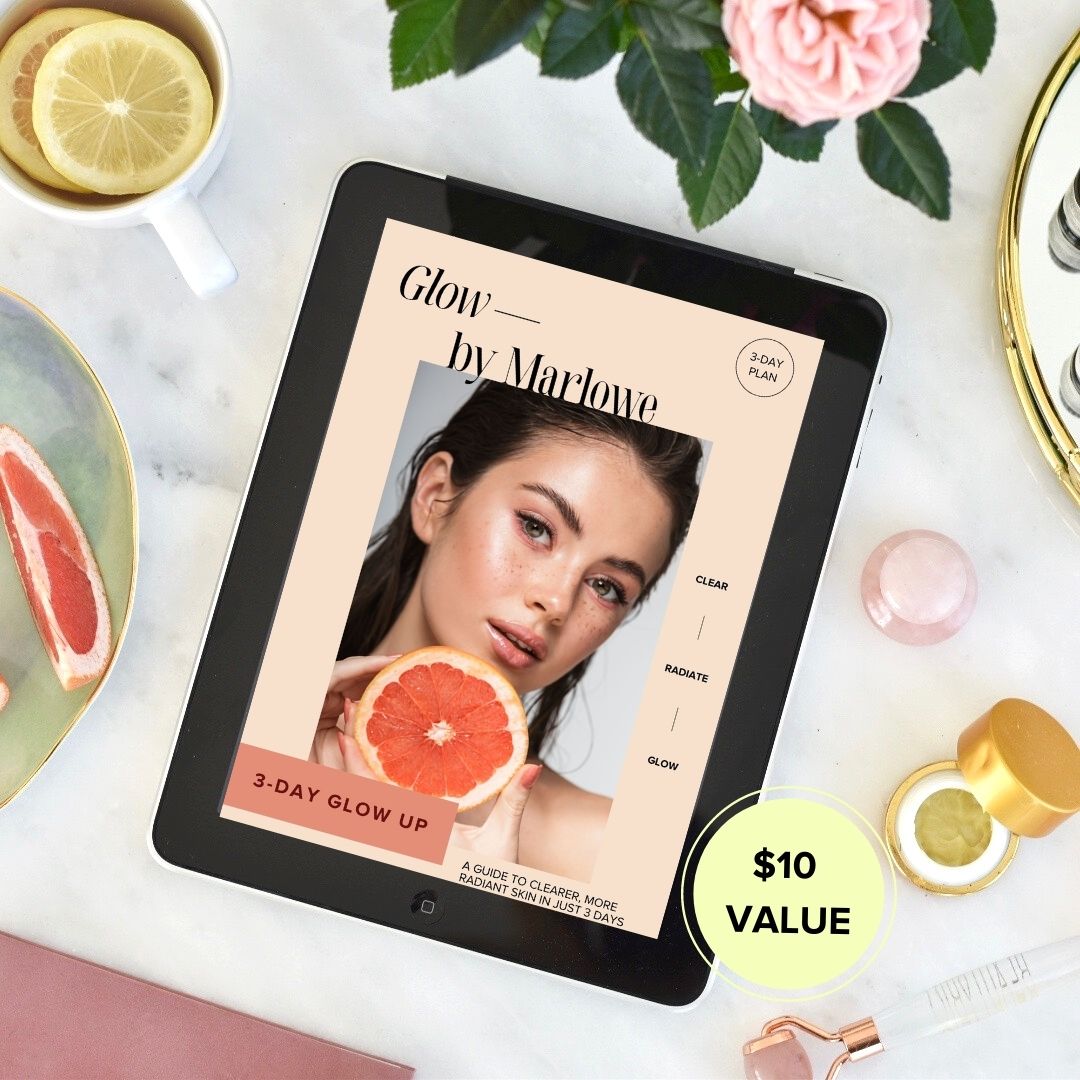
Plus, you’ll receive The Glow Up Guide right away, a delicious 3-day meal plan to reduce redness and bumps, fast.





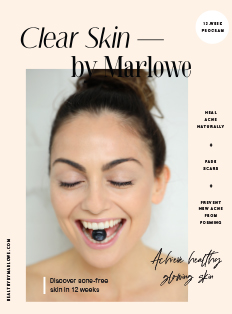
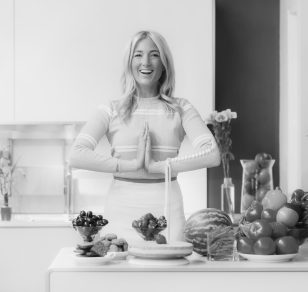

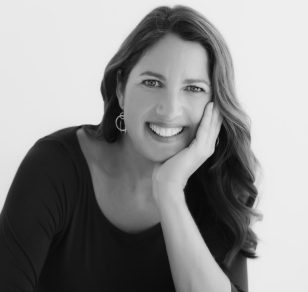


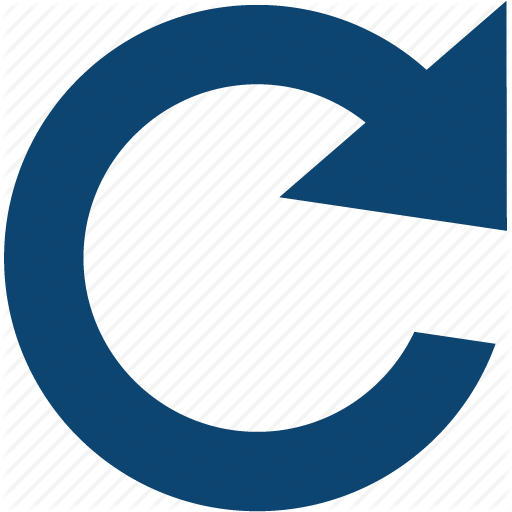

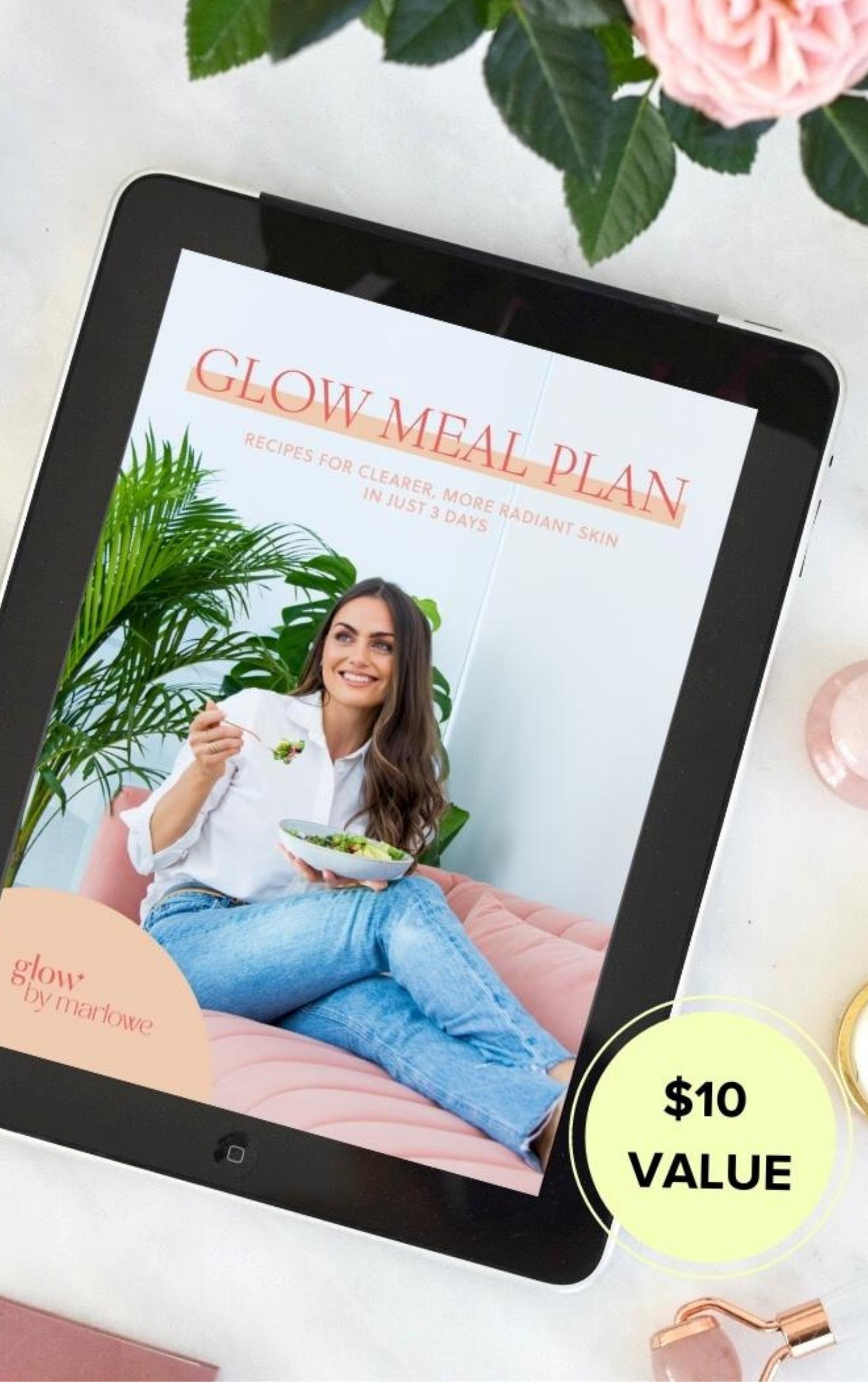
No Comments